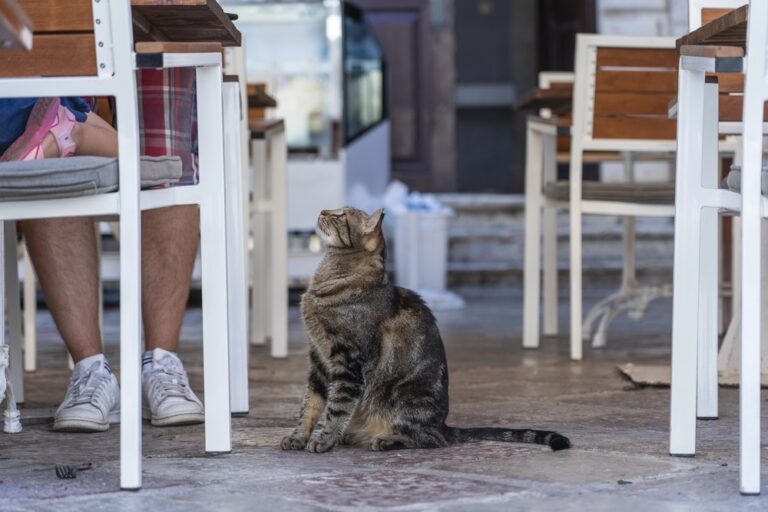My wife and I recently returned from our first trip to Greece. In between my hectic schedule of espresso, sailing, hiking, pilgrimages to historical sites, and just eating while traversing the Hellenistic Empire, I noticed one thing in particular. It’s a cat. Cats are everywhere. In the street, at your feet, in the bar, in your car. Our friends in Athens also said this. There are many cats living in the town. This is an arrangement that goes back thousands of years. Cats were seen as both bringers of good fortune and protectors from evil spirits. The goddesses Artemis, Aphrodite and Athena were often accompanied by cats. If Greek mythology has taught me anything, it’s that you shouldn’t mess with the gods or the local wildlife (looking at you, Zeus). There was also a practical aspect. Cats helped keep rodents away from granaries and exterminate other pests, while the winding, narrow alleyways that served as streets provided shelter and a steady source of food.
But what stood out to me was the organization of the felines. Whether you were in Athens, Nafplio, Ithaca, Meteora, or Mount Olympus, the cats generally behaved the same way. Although they sometimes acted alone and sometimes in small groups, their manners were always exquisite. You will always find a cat curled up at your feet, preferably in a sunny spot, staring at you and your meal, waiting for you to make the right decision to drop the plate on the ground. They will never climb on the table or scratch your feet impatiently. Honestly, my cats could learn from them too. If someone, cat or human, broke the code, it was quickly fixed.
One day, as we were enjoying afternoon coffee in Ithaca and discussing this phenomenon with a local friend, another tourist, uninvited, said, “Truly, they are a plague.” Honestly, I couldn’t imagine a more stupid statement. In addition to being childless cat men, we were witnessing a social order evolving spontaneously through the self-interest of each party.
F.A. Hayek argued that many structures are examples of voluntary imperatives, and having witnessed this development of law and moral norms across species, I am inclined to agree. Essentially, the genteel tourist’s view was that humans are better suited to allocate resources. Floaters are an inefficient use of limited resources that would be better spent elsewhere. I might have been tortured if I hadn’t gotten so carried away that I accidentally dropped a piece of sardine on the ground near the cat’s shadow. No person or planning organization has all the knowledge to allocate resources effectively. We best allocate resources based on our individual needs, values, perceptions, and circumstances. We can influence each other’s behavior and develop social norms that promote mutual flourishing and evolutionary survival.
But maybe I’m thinking too much about the interactions between communal cats and the people who adopt them. Perhaps all we have here is a mouthful of fish and a gentle purr of a “thank you,” and then we part ways and move on to other parts of our lives. But even if all my waxing philosophies about spontaneous order were nothing more than nonsense, with a velvety espresso in hand, a warm sun on my face, and a soft cat keeping me company Even so, I’m totally okay with that.
Dennis Murphy is a professional airline pilot with a background in aviation safety, accident investigation, and causation. When he’s not flying 737s, he enjoys spending time with his wife, their dog, cat, and bees.


